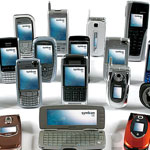Whether you have upgraded your old cell to the newest smartphone, are using your new tablet or are perusing the latest book on your reading device, we all engage with our hand-held devices on a daily level. The vast majority of people own at least one of these mobile devices and with today’s modern technology they have made our lives more enjoyable and productive.
But along with the pleasure associated with our mobile wireless connectivity, there have also come many unwelcome guests; hackers, viruses and other dangerous security concerns. Although the impact of wireless security breaches are still beginning to be felt, they will likely reach the same numbers associated with our old desktop computers. One in twenty of our towers are either infected with some type of virus, malware or other annoying infestation, and 15% of all online traffic is said to contain some kind of active cyberattack mechanism or program.
While these statistics are alarming, it might be of some solace to know that most of the time, the average consumer isn’t the ultimate victim being sought, attacked only 3% of the time. Hackers real targets are much bigger, aimed more at big governments, industry and finance. But don’t be fooled either, these cyber scum are also sneaking into less expected places like schools and news organizations.
BIG BUSINESS
Even though 90% of hackers are considered amateurs, they are still very good at what they do, costing the United States an estimated $70 billion dollars a year. A couple of industry giants that have admitted to mobile or wireless security breaches in the past few years are:
- In June of 2014, AT&T admitted that a few employees from one of their vendors had accessed an undisclosed amount of customer data.
- One account suggested that TJX had weak encryption on a wireless transfer that exposed 94 million credit card numbers.
There are dozens of examples of huge security breaches that were caused by everything from human error to outright theft of intellectual property that cost billions of dollars worldwide. Mobile wireless connectivity creates new avenues for the skilled hacker to enter into our personal lives through our hand-held devices.
SMALL STEPS
So how can we protect ourselves and our mobile data from online cybercriminals and internet pirates? These answers are not surprisingly similar to those that should have already been implemented on our old desktop models.
- Better Password Protection: Use more effective passwords and don’t continuously use the same passcode, update and change them often. Rather than have a simple word or set of numbers, use upper and lowercase characters along with numbers and special symbols like ! and $ or *. Stay away from @ and # for obvious reasons.
- Personal Information Protection: Please, please, please don’t have a file called “passwords” on your device and moreover, don’t store any personal information on your device, whatsoever, period. There is no reason to have your driver’s license, social security, credit card or other sensitive numbers listed there.
- Better App Management & Protection: Check the reviews and number of downloads before you get the newest App. And think about it, do you really need to divulge your location or other personal information just to play a game?
Cyber security is important to everyone, from small businesses to large corporations, individuals and governments should all be on the lookout for an impending attack.





